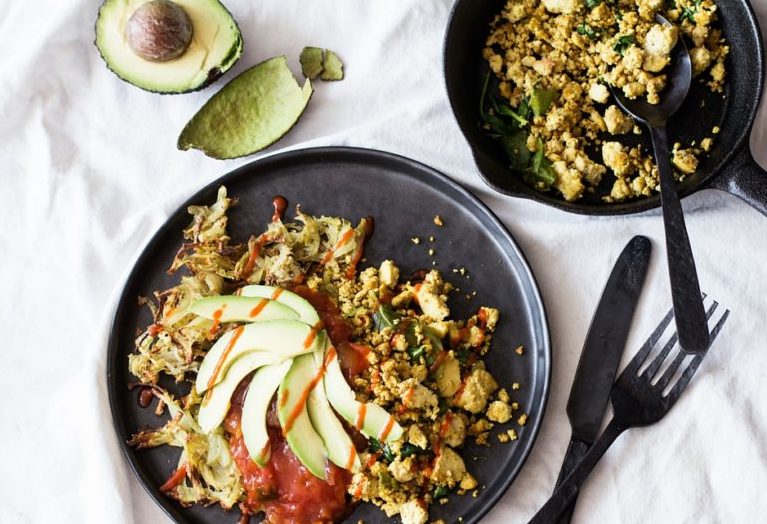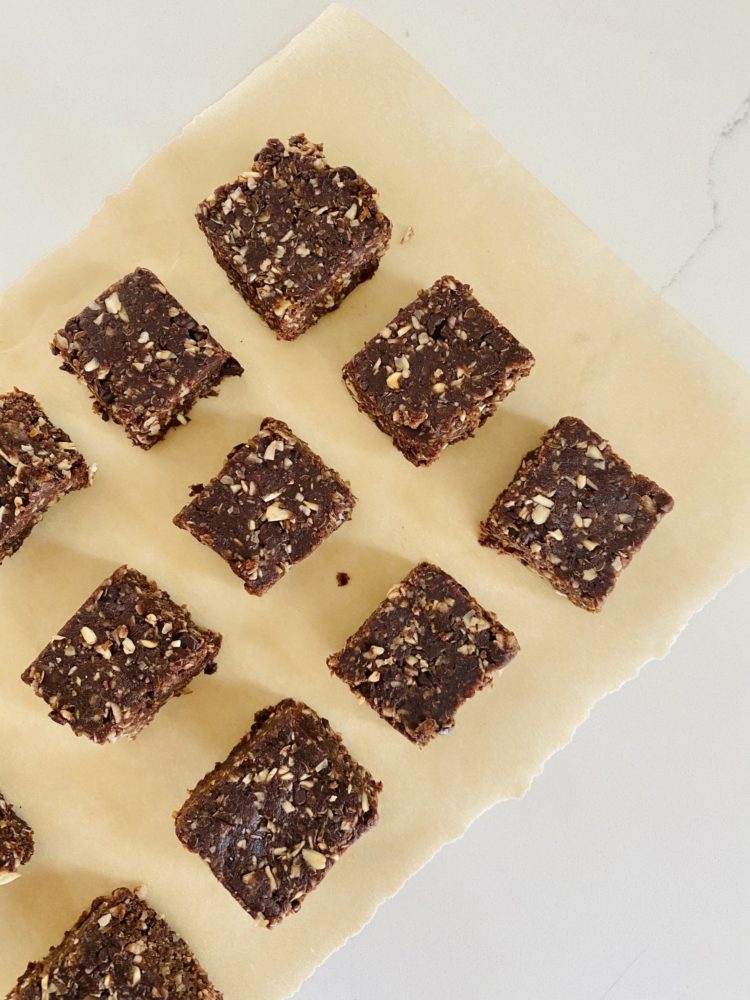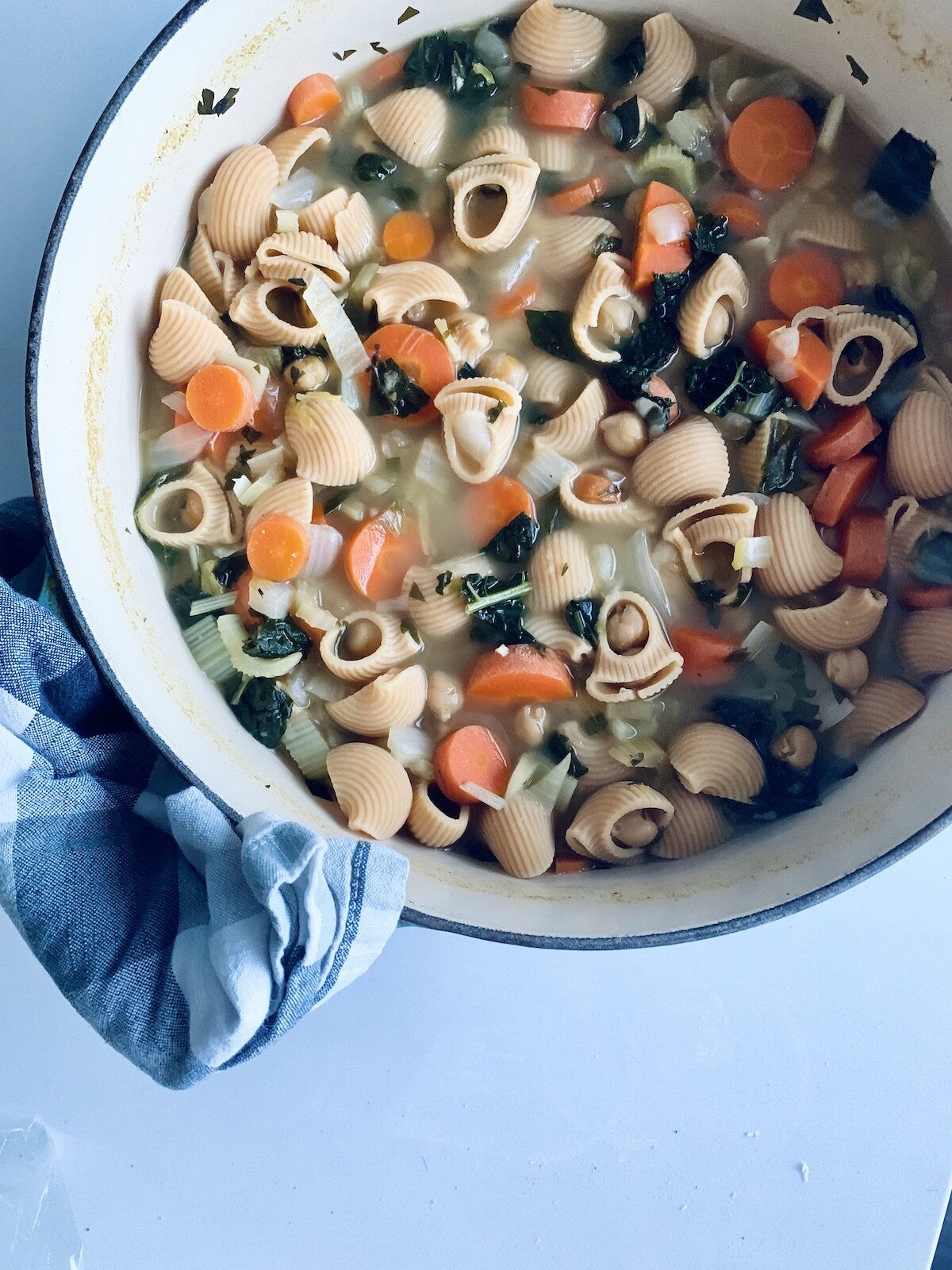Food is something we encounter every single day, multiple times a day! And for many of us, that relationship can become complicated—filled with guilt, anxiety, or just plain confusion about what to eat. If you’ve ever found yourself stuck in a cycle of dieting, bingeing, or feeling bad about your choices, you’re not alone! Healing your relationship with food is a journey worth taking, and it starts with understanding yourself better and embracing a more balanced perspective. In this article, we’ll explore some practical tips and insights that can help you cultivate a healthier, more joyful connection with food. So let’s dive in!

What is a healthy relationship with food?
A healthy relationship with food is characterized by a balanced and flexible approach to eating that prioritizes both physical nourishment and emotional well-being. At its core, it encompasses a few key principles:
- Intuitive Eating: A hallmark of a healthy relationship with food is the ability to listen to your body’s hunger and fullness cues. This means recognizing when you’re truly hungry and allowing yourself to eat until you feel satisfied, rather than adhering to external rules or pressures about portion sizes or meal timing. Intuitive eating teaches you to trust your body and develop a sense of inherent wisdom about what, when, and how much to eat. Read more about intuitive eating in this post.
- Variety and Balance: A diverse and balanced diet is crucial for good health. This involves consuming foods from all food groups—proteins, carbohydrates, fats, fruits, and vegetables. Embracing a wide array of foods and balanced meals not only ensures that you’re obtaining essential nutrients but also enhances the enjoyment of eating. It helps to ward off feelings of deprivation that can lead to unhealthy eating behaviors.
- Freedom from Labels: In a healthy relationship with food, there is no categorization of foods as “good” or “bad.” Instead, all foods are seen as part of a balanced diet. This perspective reduces food guilt and the anxiety that often accompanies restrictive eating patterns. The joy of enjoying “fun foods” without fear or shame fosters a more positive mindset and encourages a sustainable approach to eating.
- Emotional Awareness: Recognizing the role that emotions play in eating is vital. A healthy relationship with food involves acknowledging emotions without using food as a primary coping mechanism. It’s important to welcome emotions and understand that it’s okay to enjoy food for reasons beyond nourishment, such as celebration or comfort, while also finding other ways to address emotional needs. Learn more about my take on emotional eating here (it might surprise you!).
- Self-Compassion: Self-kindness is fundamental to a healthy relationship with food. Rather than being critical or harsh towards oneself for food choices, individuals should practice self-compassion and approach their eating habits with understanding and grace. This shift in mindset allows for forgiveness after indulgences and a more forgiving approach to food choices.
- Flexibility: A healthy relationship with food is also marked by flexibility. Life is unpredictable, and a rigid diet can lead to feelings of frustration or failure when plans change. Embracing spontaneity in food choices, whether it’s trying a new restaurant or enjoying a treat, fosters a more relaxed and enjoyable eating experience. A healthy relationship with food doesn’t mean throwing out nutrition, but it does mean having the ability to consider context and make flexible food decisions moment to moment. Learn more about how to do that here.
Ultimately, a healthy relationship with food is about finding joy and satisfaction in eating while honoring your body’s needs. It’s about nourishing yourself in a way that promotes both physical health and emotional wellness, allowing you to thrive in all aspects of your life. Through self-discovery and conscious effort, anyone can cultivate a positive and fulfilling relationship with food that enhances their overall quality of life.
What is an unhealthy relationship with food?
An unhealthy relationship with food can manifest in various ways, significantly impacting both mental and physical well-being. It often involves a cycle of negative thoughts, restrictive eating behaviors, and emotional triggers that lead to disordered eating patterns. This complex relationship can stem from societal pressures, personal experiences, or a history of dieting, and it can result in feelings of guilt, shame, and anxiety surrounding food choices.
One of the hallmarks of an unhealthy relationship with food is the tendency to view certain foods as “good” or “bad.” This binary classification can create a mindset of deprivation, where individuals feel they must restrict themselves from consuming certain items. The pressure to maintain such restrictions can lead to binge eating or emotional eating, where food is used as a source of comfort or a coping mechanism during times of stress or sadness. In these instances, food becomes less about nourishment and enjoyment and more about managing emotions or escaping uncomfortable feelings.
This unhealthy dynamic can also be exacerbated by dieting, which often creates a cycle of restriction and bingeing. Many people find themselves caught in a pattern of strict dieting followed by episodes of overeating, leading to dissatisfaction with their bodies and a distorted self-image. This cycle not only affects physical health but also contributes to emotional distress, reinforcing negative beliefs about oneself and food.
Moreover, individuals with an unhealthy relationship with food may experience a heightened sense of food guilt or shame after eating, particularly when they indulge in foods they deem off-limits. These feelings can compound over time, leading to a negative feedback loop where the individual feels compelled to restrict their diet again, perpetuating the cycle of disordered eating.
Ultimately, an unhealthy relationship with food is characterized by a lack of balance and mindfulness. It clouds the ability to enjoy meals and appreciate the nutritional value of food, reducing it to a source of stress rather than a means of nourishment and pleasure. Recognizing and addressing these patterns is crucial for fostering a healthier mindset, where food is seen as a source of nutrition and enjoyment rather than a battleground for emotions and self-worth.
Signs you need to heal your relationship with food
Recognizing when your relationship with food has become unhealthy is a crucial step towards healing. Here are several signs that indicate you may need to reassess and improve your connection with food.
- Constant Preoccupation with Food: If you find yourself obsessively thinking about food, whether it’s counting calories, planning meals, or worrying about what to eat next, it may be a signal that your relationship with food is strained. This constant mental chatter can distract you from enjoying life and engaging in other fulfilling activities.
- Emotional Eating: Turning to food for comfort, stress relief, or as a reward are common signs of an unhealthy relationship with food. If you frequently find yourself eating in response to feelings such as boredom, sadness, or anxiety, it may be time to explore healthier coping mechanisms and re-establish a balanced relationship with food.
- Guilt and Shame Around Eating: Experiencing guilt or shame after eating certain foods or when deviating from your eating plan indicates a problematic mindset. If you label foods as “good” or “bad” and feel bad about indulging in treats, you may be reinforcing a cycle of restriction and bingeing, which is detrimental to your mental and physical health.
- Yo-Yo Dieting: Engaging in cycles of restriction followed by binge eating can disrupt your body’s natural hunger cues and lead to feelings of powerlessness around food. If you find yourself frequently starting new diets only to abandon them shortly afterward, it may indicate a deeper issue with how you relate to food and your body.
- Physical Symptoms of Stress: If you experience physical symptoms such as anxiety, stress, or digestive issues related to your eating habits, it’s a clear sign that your relationship with food needs attention. Your body may be signaling that the way you approach eating is causing more harm than good.
- Avoidance of Social Situations: If you frequently avoid social gatherings or events due to food-related anxiety, it may hinder your relationships and overall quality of life. A healthy relationship with food should allow you to enjoy shared meals and experiences without fear or stress.
- Rigid Food Rules: Adhering to strict diet rules can limit your enjoyment of food and create a sense of deprivation. If you find yourself adhering to a set of inflexible guidelines about what and when to eat, it may indicate that you need to redefine your relationship with food.
- Disconnection from Hunger Cues: If you struggle to recognize when you’re hungry or full, it suggests a disconnect from your body’s natural signals. Healing your relationship with food involves learning to listen to your body and trust its cues, rather than relying on external rules or societal pressures.
If you resonate with one or more of these signs, remember that healing is a journey. It’s important to approach this process with compassion and patience. Consider seeking support from a healthcare professional or exploring resources like “Intuitive Eating” by Elyse Resch and Evelyn Tribole. Or join my Plant-based intuitive Eating Program for targeted support in reclaiming a balanced and healthy relationship with food.
5 steps to heal your relationship with food
Ditch diet mentality
In a world saturated with diet culture, it can be incredibly challenging to cultivate a healthy relationship with food. The pervasive messages surrounding weight loss, calorie counting, and food restrictions often lead to a cycle of guilt, shame, and disordered eating habits. However, choosing to ditch the diet mentality is a crucial step toward healing your relationship with food and achieving a more balanced and fulfilling approach to eating.
Understanding the Diet Mentality
The diet mentality is characterized by rigid rules about what and when to eat, often promoting the idea that certain foods are “good” while others are “bad.” This mindset not only creates feelings of restriction and deprivation but also fosters a harmful relationship with food, where enjoyment and nourishment take a backseat to adherence to arbitrary guidelines.
When we focus on diets, we often become preoccupied with food — constantly thinking about what we can and cannot eat, frequently counting calories, and feeling guilt over perceived failures. This preoccupation can lead to binge eating, emotional eating, and an overall disconnection from the body’s natural hunger and fullness cues.
Embracing Flexibility and Freedom
By letting go of the diet mentality, you open the door to a more intuitive and enjoyable way of eating. Embracing a flexible approach means allowing yourself to enjoy all foods in moderation, without labeling them as right or wrong. This shift not only reduces feelings of guilt associated with eating but also enhances the pleasure you derive from food.
When you stop viewing food through the lens of restriction, you create space for mindfulness and connection. You can learn to listen to your body’s cues, recognizing when you are hungry, satisfied, or craving something specific. This awareness fosters a more respectful relationship with your body, allowing you to honor its needs rather than fighting against them.
Breaking Free from Guilt
Ditching the diet mentality also means breaking free from the cycle of guilt that often accompanies eating. Instead of punishing yourself for indulging in a treat or deviating from a strict eating plan, you can cultivate self-compassion. Understanding that food is not a moral issue — it does not define your worth — allows you to savor your meals without the heavy burden of guilt.
As you embrace a more balanced approach to eating, you may find that you experience fewer uncontrollable cravings. When foods are not off-limits, they lose their allure as forbidden items, and you can enjoy them without fear. This can lead to a more satisfying and sustainable way of eating, as you discover that moderation does not mean deprivation.
Fostering Enjoyment and Connection
Finally, letting go of diet culture invites you to reconnect with the joy of eating. Food is not just fuel; it’s a source of pleasure, connection, and nourishment. When you shift your focus from strict rules to enjoying the experience of eating, you can appreciate the textures, flavors, and aromas of your meals. This mindfulness can lead to greater satisfaction and a more positive relationship with food.
Learn how to tune in to your body’s signals
Establishing a healthy relationship with food is a transformative journey, and a fundamental aspect of this process is learning to tune in to your body’s signals of hunger, fullness, and satisfaction. By fostering awareness of these cues, individuals can step away from restrictive eating patterns and cultivate a more intuitive approach to nourishment.
Understanding Hunger
Listening to your body’s hunger signals is a crucial first step. Hunger is a natural and essential physiological response that signals the need for nourishment. When we ignore or suppress these signals—often due to dieting rules or societal pressures—we risk falling into patterns of extreme restriction followed by overeating. This cycle can lead to a disconnection from one’s bodily needs, creating a turbulent relationship with food. Instead, honoring your hunger allows you to nourish your body consistently, preventing feelings of deprivation that often lead to binge eating. By giving yourself permission to eat when you are hungry, food becomes a source of fuel and energy rather than an object of anxiety or guilt.
Recognizing Fullness
Equally important is the ability to recognize fullness cues. Many people struggle to identify when they are comfortably full, often eating until they are uncomfortably stuffed. Developing mindfulness around the sensations in your body can help you identify the point at which you’ve had enough. This practice encourages you to slow down during meals, savor each bite, and truly enjoy the experience of eating. By tuning in to your body’s signals, you can make conscious decisions about when to stop eating, fostering a sense of control and satisfaction that eliminates the need for post-meal regret.
Pursuing Satisfaction
Satisfaction plays a pivotal role in creating a healthy relationship with food. When you allow yourself to enjoy a variety of foods—those that are both nourishing and pleasurable—you can cultivate a sense of balance in your diet. It’s not just about filling your plate with “healthy” options; it’s also about appreciating the flavors, textures, and experiences associated with food. By recognizing that all foods can contribute to your overall well-being, you can approach meals with a sense of joy rather than restriction. This shift in perspective encourages a more positive view of food, reducing the allure of “forbidden” items and allowing you to enjoy a wider array of choices without guilt.
Get clear on your personal values (and how they relate to food)
As a plant-based eater, you likely understand that your values are deeply intertwined with your food choices. However, diet mentality distracts you from the core values that probably led you to plant-based eating in the first place. When you clear out diet mentality, you create space to reconnect with those values. Choosing to eat plant-based because of values related to the environment, food politics, animal welfare, or your health can be part of a healthy relationship with food.
Learn to practice gentle nutrition
As I mentioned, rejecting dieting doesn’t mean rejecting nutrition. Practicing gentle nutrition involves approaching food choices with kindness and flexibility rather than strict rules and limitations. It encourages you to listen to your body’s needs while also honoring your preferences and lifestyle. Start by focusing on adding more whole, nutrient-dense foods into your meals without labeling others as “bad.” This method fosters a more intuitive eating approach where you can mindfully select foods that make you feel good physically, emotionally, and mentally. Rather than viewing nutrition as a rigid set of guidelines, see it as a spectrum that allows room for indulgence, variety, and personal enjoyment. As you cultivate this gentle mindset, you may find that your food choices naturally align with your health goals, leading to a more cohesive and enjoyable relationship with food overall.
Get support
Healing your relationship with food can feel overwhelming, but you don’t have to do it alone! I’m here to support you with over a decade of experience in plant-based nutrition, intuitive eating, and women’s health. If you want guidance in creating a relationship with plant-based eating that feels easy, peaceful, and enjoyable, join my Plant-based Intuitive Eating Program.


